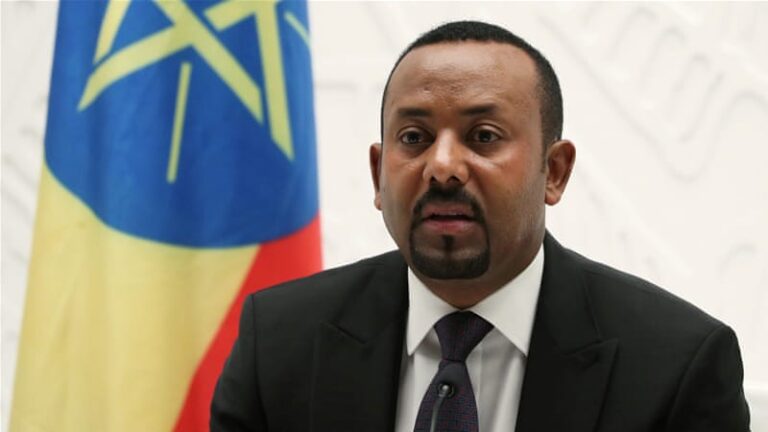Ethiopia launches the first kind of tripartite agreement between the government, employers and employees, of work force protocol to encompasses measures taken to fight against the pandemic virus Covid 19 by employers, employees and safety committees.
“Even if reducing the impact of Covid 19 is the top priority of the government, the disease can have a negative impact on the economic growth and its potential impact on labor relations is huge,” said Ergego Tesfaye, Minister of Labour and Social Affairs.
Workplace Response Protocol is to be implemented by actors is prepared according to the International Labor Organization guideline for response to crisis management when work is under attack by natural and man-made disasters. The protocol was signed between three parties’ Ministry of Labor and Social Affairs, the Confederation of Labor and Confederation of Trade Unions.
The Covid 19 epidemic, despite the fact that the country’s anti-corona movement is being carried out by industry and service providers, the disease can have a negative impact on the economic growth and its potential impact on labor relations is huge. The protocol is carefully researched and believed that it can foster a persuasive and sustainable industrial peace. The protocol advises taking legal and administrative action.
The Protocol also urge basic workplace protection strategies to be implemented by employers, employees and safety committee that includes precautions to be taken. The ability to respond to crisis in organizations varies from organization to organization and also from sector to sector and as a result, solutions not only derive from the organizations, but also the step-by-step recommendations are prescribed by the protocol.
The launching of the protocol, which was attended by the leaders was to provide the workers and employees to prevent and control the outbreak of the Covid 19 epidemic.
COVID 19 is threatening the health and the livelihoods of workers and employers globally. As stated on the protocol, policy responses should focus on two immediate goals, health protection measures and economic support on both the demand and supply side.
First, workers and employers and their families should be protected from the health risks of COVID 19. Protective measures at the workplace and across communities should be introduced and strengthened, requiring large-scale public support and investment. Second, timely, large-scale and coordinated policy efforts should be taken to provide employment and income support and to stimulate the economy and labor demand.
As stated on the ILO guideline protocol, such kind of measures not only cushion enterprises and workers against immediate employment and income losses, but also help prevent a chain of supply shocks such as losses in workers’ productivity capacities and demand shocks as suppressing consumption among workers and their families that could lead to a prolonged economic recession.
Employment retention schemes, including short-time work arrangements partial unemployment benefits and other time-bound support for enterprises, such as wage subsidies and temporary cuts to payroll tax exemptions from social security contributions provision of paid leave and extension of existing entitlements to workers, and training leave, grants and related schemes; time-bound financial tax relief and income smoothing measures to support business continuity, especially MSMEs and the self-employed subsidies, credit mediation or re-financing to overcome liquidity constraints.
Tripartite agreement signed to fight COVID 19
300,000 government employees working from home
In order to prevent the spread of corona Covid 19 virus through social distance as a key strategy Ethiopia orders around 300,000 federal employees to stay and work from home.
In an attempt to stop the spread of corona virus (COVID-19) pandemic, the Council of Ministers chaired by Prime Minister Abiy Ahmed in a meeting held on March 24, 2020 decided that selected civil servants in Addis Ababa should work from home.
The Council of Ministers met in an extraordinary session to discuss COVID-19 response measures, in light of the social, political and economic effects spread of the virus can create.
“The Council of Ministers has decided that as part of efforts to mitigate the spread of COVID-19, Federal Government employees will work from home effective March 25, 2020 until further notified. Federal Government employees who will work from home will be selected based on criteria to be set by each Ministry and communicated with their workforce,” the Office of the Prime Minister said in a statement.
There are 58 federal offices including the 16 Ministry offices. Accordingly there are more than 400,000 of civil servants at the federal level and 1.4 million employees at government level all over the country.
Based on the call to curb the spread of COVID-19 most Ministry offices are taking measures to decrease the number of employees staying at the office.
Hence Ministry of Health has announced 42 percent of its staff will be either on leave or working from home, the Ministry of Education and its reporting institutes have decided that among the 1,544 staffs in total only 196 (12.7%) will be in office over the coming days the remaining staffs will work from home.
The prime ministry office by itself announced that 64 percent of a total of 289 PMO staff members including advisors will work from home for the next two weeks.
Ministry of Trade and Industry has decided to 61 percent of its workforce to work from home.
Ministry of Urban Development and Construction, 75 percent, Ministry of Finance, 43 percent, Ministry of Revenues, 34 percent, Ministry of Agriculture, 20 percent, of their workforce will work from home.
Moreover Public Social Security Agency, 79 percent and 90 percent of Ministry of Science and Higher Education will work from home.
During this period, Federal Government employees working from home are expected to be accessible for tasks that require their contribution. This measure is taken to decrease city wide movement and transport sector crowding,” the statement from the Prime Minister office said.
‘As Federal Government institutions follow this approach to mitigate the spread of COVID-19, it is critical to note that these measures are also being taken to ease overcrowding in the public transportation system. Therefore, government employees are asked to adhere strictly to the ‘work from home’ policy and remain at home,’ the statement further added.
Ethiopia to releases inmates to curb coronavirus spread
Ethiopia releases more than 4,011 prisoners on Thursday March 26, in an effort to slow the spread of the coronavirus.
Attorney General Adanech Abebe said inmates convicted of minor crimes, with less than a year left on their sentences, and women with babies, qualify for release.
Ethiopia is also deporting foreign inmates being held on drug-trafficking charges to their native countries.
In related news a fire broke out at Qilinto Prison facility on Saturday March 28 after prisoners were allegedly rioted demanding to be released.
So far, Ethiopia has had 16 confirmed cases of coronavirus, but with the disease spreading rapidly across Africa, the government decided to take action to fight the spread of the virus.
The government is constantly urging Ethiopians to practice social distancing, even as large crowds ignore warnings and gather for events in the capital, Addis Ababa.
Tour operator pledges help from the government
Even though the tourism sector is one of the major victims during the coronavirus epidemic, the long established tour operator, Green Land Plc, asked unilateral relief in its loan facility and other mitigation mechanism.
The company established over half a century ago claimed that the epidemic imposed several challenges in its activity.
In a letter signed by Getachew Belay, General Manager of Green Land and sent to the Prime Minister and copied to other relevant government offices like Minister of Culture and Tourism, Minister of Finance, Hailemariam Desalgn, who is Tourism Board chair, Minister of Health, Minister of Labour and Social Affairs, Minister of Revenue, and associations related to the tourism sector, stated that since the last four months the tourism sector has been severely affected by the pandemic all over the world.
“Our company established with over 550 million birr is severely affected,” the letter states.
The company said that it is the major company on the tour operation business affected on the current global pandemic than other companies.
It said that due to the challenge its more than 500 employees are at risk of getting laid off.
It asked the government to involve in the solution and put 6 points as a short term solution to mitigate the challenge and keep employees from layoff.
In its first mitigation plan it asked the government to provide short term working capital loan to give paid leave for its employees.
According to the company its monthly wage is over half a million birr for it’s over 500 employees.
Green Land also requested a one year extension for its entire loan. It also claimed to suspend the tax refunds like VAT until the situation calm down.
The company has also asked the government to lease vehicles imported by duty free scheme for non-tourism businesses. It is recalled that tour companies that were allowed importing modern vehicles for their operation are not eligible to rent their cars other than the tourism business.
Green Land stated that from all the tour companies in the country it is the most affected company and the decision of the government is vital to tackle the current challenge.
Green Land is one of the prominent tour operators in the country that operates hundreds of vehicles.
The global lockdown and temporary flight suspension of airlines are the major challenges for the sectors like tourism. The company claimed that Ethiopian Airlines’ temporary suspension of flight to more than 30 (which is now 72) destination has imposed significant damages on the company.






